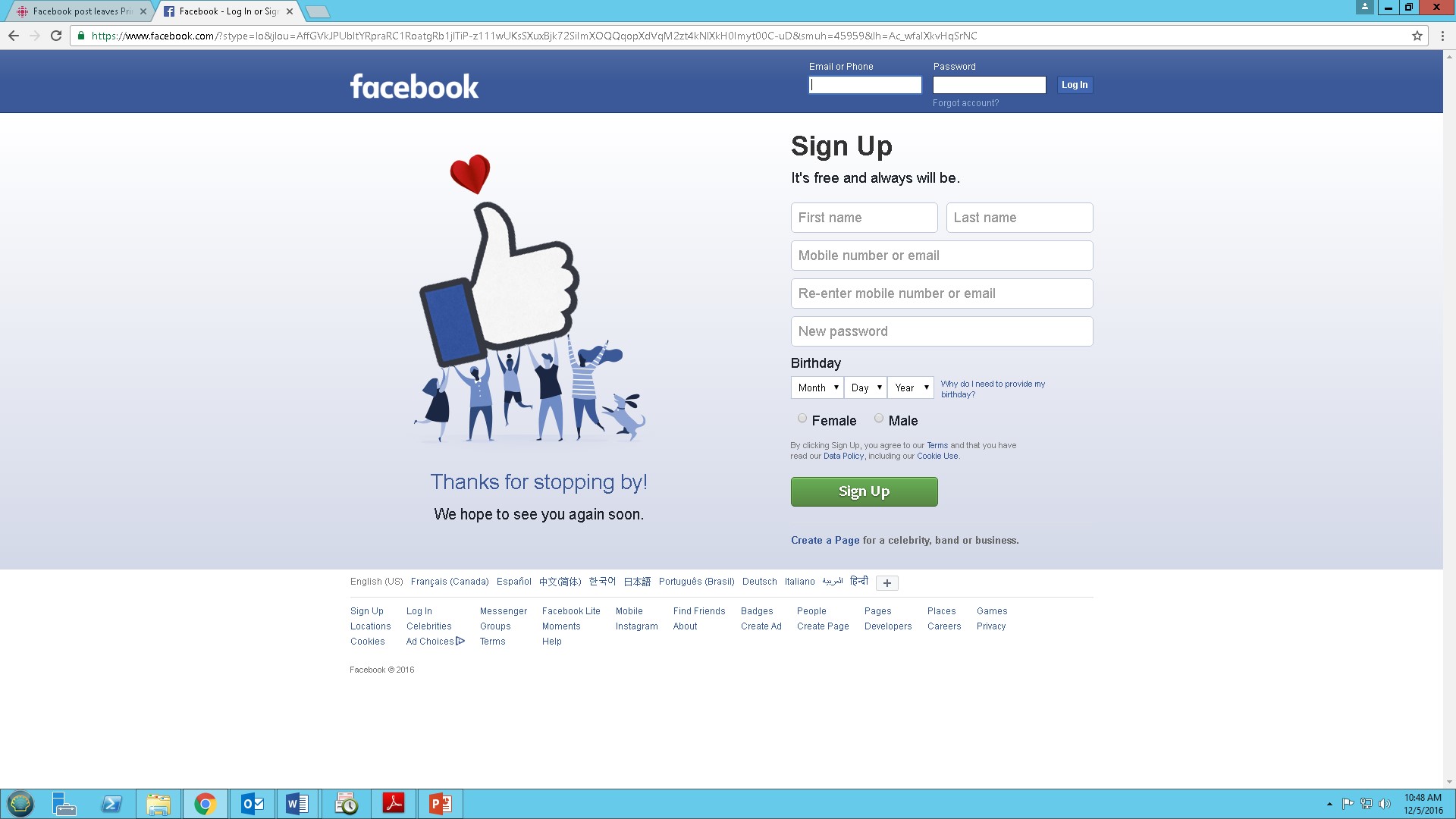Nurse’s personal comments on Facebook and Twitter constitute “Professional Misconduct”: what do family health teams need to know about social media and the law?

Last week I presented with Maria McDonald on “Social Media and the Law” and issues family health teams need to consider. Then on Friday December 3rd the CBC reported on a nurse being found guilty of professional misconduct in Saskatchewan for personal comments she made on Facebook and Twitter about care received by her grandfather. You can read the CBC story here and the details of the finding of the Saskatchewan Registered Nurses’ Association here.
Here’s what the nurse wrote online:
“<name> spent a week in “<facility>” before he died and after hearing about his and my family’s experience there <blank> it is evident that Not Everyone is “up to speed” on how to approach end of life care . . . Or how to help maintain an Ageing Senior’s Dignity (among other things!) So . . . I challenge the people involved in decision making with that facility, to please get All Your Staff a refresher on this topic AND More. . . . to those who made <name> last years less than desirable, Please Do Better Next Time!. . . And a caution to anyone that has loved ones at the facility mentioned above: keep an eye on things and report anything you Do Not Like! That’s the only way to get some things to change. The fact that I have to ask people, who work in health care, to take a step back and be more compassionate, saddens me more than you know!”
“. . . And this has been an ongoing struggle with the often subpar care given to X (especially ) for many years now . . . Hence my effort to bring more public attention to it (As not much else seems to be working).
As an RN and avid health care advocate myself, I just HAVE to speak up! Whatever reasons/excuses people give for not giving quality care, I Do Not Care. It. Just. Needs. To. Be. Fixed. And NOW!”
The nurse was found guilty of professional misconduct despite the fact that she was not providing care to her grandfather. She had however referred to herself as a nurse in the posts – presumably to lend credibility to her critique. It was found that she had failed to bring her concerns forward through the proper channels, failed to obtain all relevant information before making her comments and failed to act with professionalism in violation of the Association’s Code of Ethics.
This case provides a clear message to all clinicians to be mindful of what you post online. And is a reminder for health care organizations to provide leadership for what is permitted and discouraged online activity.
The Benefits of Social Media
Most family health teams in Ontario (at least the ones I know) have a pretty decent social media presence: Twitter, Facebook, and LinkedIn being the most popular platforms.
Using social media has become an essential way informally to communicate with your community and patients and at no (or very low) cost. You can share your contact information, hours of operation, and clinic information – reducing the need for phone calls to your admin team.
Many family health teams also use social media to meet their health promotion mandate. Look around and you will find one of the biggest benefits of social media is communicating about healthy lifestyle options. Social media posts are by nature “informal” which sets a welcome challenge to family health teams make complicated health information easily understandable and relevant.
Regulatory Colleges Have Rules about Social Media
Most Ontario’s health regulatory Colleges updated their social media guidelines in 2013. Here is a sampling of policies:
- CPSO – Social Media – Appropriate Use by Physicians
- CNO – Social Media – Reflect before you post
- Ontario College of Pharmacists – Social Media Learning Module
- Ontario College of Social Workers and Social Service Workers – Social Media and Practice –
- College of Dietitians – Social Media and Dietetic Practice
- Ontario Psychological Association (not a College) – Guidelines for Best Practices in the Use of Social Media
The main themes that arise from these College guidelines and legal cases include:
- Maintaining appropriate boundaries with patients
- Protecting privacy and confidentiality
- Obtaining informed consent for any form of treatment
- Following College standards in all forms of clinical practice – including online
- Respecting colleagues and employers
When Social Media Use Goes Wrong
But clinicians must be careful about their use of social media. As the case with the Saskatchewan nurse shows, even if you believe your comments on social media are personal and have nothing to do with your work – your regulatory College or your employer or the Information and Privacy Commissioner may find differently. See:
- Cases involving sexist or vulgar comments made by a Hydro One employee in 2015 and Toronto firefighters in 2014 have raised questions about what employers can do about personal activity on social media or about off-duty conduct that goes viral on social media.
- The Papadopoulos case from the College of Psychologists of Ontario in 2012 found Ms. Papadopoulos guilty of professional misconduct for comments made on a podcast in contravention of the standards of the College.
Practical Tips:
For clinicians, the message is clear: you should be thoughtful and mindful about what you put into the public sphere. You wear your professional hat in public and you may be held to account for your public statements.
For employers, the advice is always the same – have a policy that clarifies your organizational expectations for staff using social media – and train on that policy.